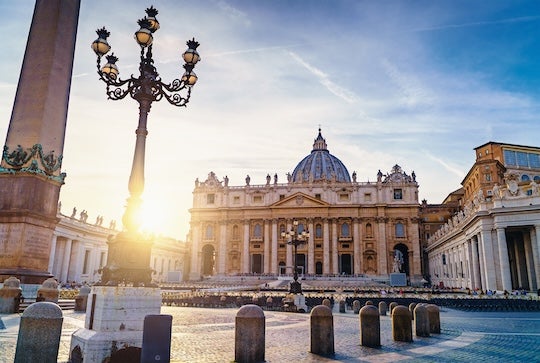As the Vatican prepares to choose the next leader of the Roman Catholic Church, Rice University sociologist Craig Considine is available to provide analysis and commentary on the conclave to select the next pope, the critical issues facing the Catholic church and the potential direction the next Pope may take on a number of issues.

“The next pope will inherit a global church navigating a rapidly changing world, grappling with internal debates and external pressures,” said Considine, a senior lecturer in sociology.
According to Considine, the most pressing issues demanding the attention of the College of Cardinals in selecting the next pope during the conclave are as follows:
Geopolitical conflicts and diplomacy
“The next pope will assume leadership during a time of significant global instability, particularly in the Middle East,” Considine said. “The Israeli-Palestinian conflict will undoubtedly command attention. The next pope has to advocate for a just peace while simultaneously protecting the vulnerable Christian communities in the Holy Land.”
Interfaith dialogue
“Pope Francis made significant strides in fostering interfaith dialogue, most notably through the co-signing of the Document on Human Fraternity with the Grand Imam of Al-Azhar. This document has become a touchstone for Christian-Muslim relations and a call for broader human solidarity. The next pope may prioritize grassroots engagement and building further bridges with other religions as Pope Francis did.”
The decline of Catholicism in the West
“The secularization trends in Western societies, especially in Europe, have led to a significant decline in religious affiliation, mass attendance and vocations to the priesthood,” Considine said. He can discuss the multifaceted reasons behind this decline, including cultural shifts and societal values, and can also analyze potential strategies the next pope might employ to address this challenge, such as renewed evangelization and fostering a sense of belonging and relevance for younger generations.
LGBTQ+ issues and the ordination of women
Considine said the Catholic church continues to grapple with evolving societal views on LGBTQ+ issues and the long-standing question of the ordination of women to the priesthood.
“These topics represent significant points of internal dialogue and, at times, tension among Catholics,” he said. “Cardinal Gerhard Müller has said the Roman Catholic Church needs to stand up to the ‘gay lobby’ as part of taking a stronger position ‘on doctrine’ that resists ideologically driven pressures.”
Considine said the verdict’s still out on whether the next pope will lean towards greater inclusivity and dialogue on these issues, or potentially adopt a more conservative stance.
A sought-after public speaker, Considine has addressed audiences at various universities, conferences and community events worldwide. His expert commentary has been featured by national and international news outlets, and he regularly engages with the press. He holds a doctorate in sociology from Trinity College Dublin, a Master of Science in international relations from Royal Holloway, University of London and a Bachelor of Arts in international relations from American University. His latest book, “Beyond Dialogue: Building Bonds Between Christians and Muslims” was published in November 2024 by Polity Press.
For more information or to schedule an interview with Considine, contact Kat Cosley Trigg at kt73@rice.edu.

